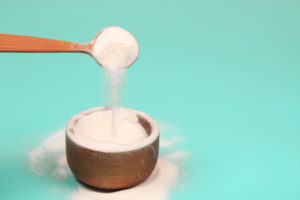 These days, collagen has become a highly touted superfood. People are putting it in their morning shakes and coffees, while others are making bone broth to use daily. Its potential benefits are all aimed at helping people look and feel younger.
These days, collagen has become a highly touted superfood. People are putting it in their morning shakes and coffees, while others are making bone broth to use daily. Its potential benefits are all aimed at helping people look and feel younger.
Collagen is essentially the glue that holds your body’s tissue together. It is a group of fibrous structural proteins and is found in skin, tendons, bones, and more. Some claim it can make skin younger and healthier, strengthen joints, nails, and even muscle.
Advertisement
But how accurate are these claims? Is collagen a superfood where a few small studies have been blown way out of proportion?
At this point, it really is too early to tell.
Like any other animal protein, collagen is essentially a collection of amino acids. When you eat it, your body breaks it down and digests it as it does anything else. The amino acids are broken down and delivered to your body to meet its various demands.
When you eat collagen, it’s not like it just goes directly to the areas that need it. It’s not transported wholly to your knee to help with joint pain or your skin to relieve wrinkles and improve elasticity.
But that doesn’t mean collagen can’t help with specific issues. There is plenty of anecdotal evidence and some scientific research to suggest it can promote youthfulness. Some work shows it can benefit joint health to improve mobility, help with skincare, and fight back against muscle loss.
Collagen is an excellent protein source that can boost the overall presence of certain amino acids in the body. This greater availability may lead to increased collagen production in the areas where you might need it most.
Advertisement
Thus far, there is not a robust amount of research to clearly state benefits. But there is some promise. Work in the past six years or so has found that:
- Taking 15 grams of supplemental collagen per day may slow muscle loss and accentuate fat loss in older men.
- They were also lifting weights three times per month.
- Could improve skin elasticity in middle-aged women.
- Potentially speed up would healing in long-term care residents.
- It may help improve symptoms of osteoarthritis and relieve overall joint pain.
These findings, however, are slim. There is still far more work to be done to substantiate the effects of dietary collagen.
If you’re interested in the potential age-defying benefits of collagen, talk to your physician. When buying a supplement, perform due diligence. Look for one that’s third-party tested by the NSF or USP, and carefully follow dosing directions.
